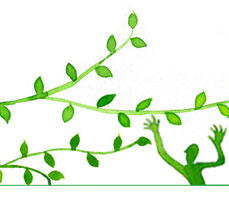마태복음 2020mt10(7:1-12) Do as what you would have them do to you.
페이지 정보

본문
Section 10 Matthew 2020
Verses | Matthew 7:1-12
Key verse | Matthew 7:12
Do as what you would have them do to you.
"So in everything, do to others what you would have them do to you, for this sums up the Law and the Prophets."
Today's message teaches you what attitude should a disciple have in human relationships. When you live in the world, the relationship with God is the most important, then - the relationship with people. The subject of the entire Bible is 'God's love' and 'Neighbor’s love' as well. Today, the golden rule of human relations is coming out, and I pray that we can learn this well so that we can have a good relationship, a community of love, and a happy religious life.
First, do not judge (1-6). See verses 1 and 2. "“Do not judge, or you too will be judged. 2 For in the same way you judge others, you will be judged, and with the measure you use, it will be measured to you." Here ‘judge’ is the Greek word 'cryno,' which is the law term of 'reprobate' and 'adjudge'. It is like a judge ruling when he or she judges a prisoner, saying, "You deserve 10 years in prison for committing this crime." We are all sinners and no one deserves to condemn and judge others. But we forget this and commit a lot of crimes that we habitually judge others without knowing it. This is the depraved form of human. But Jesus says not to judge others. This is because criticism destroys relationships with people and creates an environment in which Satan can work within the community. Criticism that lacks a deep understanding and love for the other person can deeply hurt and eventually make the person trip. When criticism becomes common, it creates distrust, skepticism, and hatred in the listener’s heart. As a result, criticism can discourage motivation and destroy individuals or communities. It's also because you will be judged when you judge others. When we criticize, our hearts are devastated, God’s words not heard, and our prayers are blocked. That's why you must change your bad habit of criticizing others.
So how can we overcome this problem? See verses 3 and 4. " 3 “Why do you look at the speck of sawdust in your brother’s eye and pay no attention to the plank in your own eye? 4 How can you say to your brother, ‘Let me take the speck out of your eye,’ when all the time there is a plank in your own eye? “ Since Jesus was a carpenter, this word sounds very realistic. We have to realize that there is a plank in our eyes. The plank is my sin against God. When we take the time to look back on ourselves in front of God and make self-discovery, we realize ourselves as evil and arrogant. You become humble and admit that you are an evil person that cannot judge to anyone. Looking back on yourself stops judging others. And you think of Jesus who suffered on the cross for your sinful self. "Father, forgive them, for they do not know what they are doing." At this time, the heart is filled with grace and the compassion for those who judge because they do not know what they are doing. You start to pray rather than judge others, thinking of the grace of Jesus who pitied you and forgave you. As a result, you resemble His character and your faith grows. Rather than trying to solve other people's problems, we should try to reflect on ourselves and repent.
In verse 5, Jesus says, "You hypocrite, first take the plank out of your own eye, and then you will see clearly to remove the speck from your brother’s eye." Only mature people, who first took the plank out of their eyes, can point out and help other people's faults and sins. Galatians 6:1 says. "Brothers and sisters, if someone is caught in a sin, you who live by the Spirit should restore that person gently. But watch yourselves, or you also may be tempted."
The disciple should not criticize others, but must distinguish between dogs and pigs, sacred things and pearl. See verse 6. "“Do not give dogs what is sacred; do not throw your pearls to pigs. If you do, they may trample them under their feet, and turn and tear you to pieces." When you give dogs what is sacred, they tear it off. Pigs trample on pearls because they don't know its value. Therefore, sacred things and pearls must be given to those who know and cherish their values. Here, "sacred" and "pearl" can mean wise advice to save people, exhortation of love, gospel, and the word of God. Proverbs 9:7~9 says "7 Whoever corrects a mocker invites insults; whoever rebukes the wicked incurs abuse.8 Do not rebuke mockers or they will hate you; rebuke the wise and they will love you.9 Instruct the wise and they will be wiser still; teach the righteous and they will add to their learning." We can make mistakes and commit sin. Because you love the other person, if you give advice and blame, you can realize your mistakes and turn them back. The person who is blamed by his or her friends gets wisdom and matures. Only the humble can listen to others’ advice. When we preach the gospel, we must know whether the recipient is humble or arrogant. You may be persecuted when you preach the gospel. However, there is no need to hold on to and fight against those who reject the gospel and attack. You must preach the gospel to them and dust off your feet when you leave. Apostle Paul ran away from those who attacked him while preaching the gospel. When we preach the gospel, we must have discernment so that we can achieve the gospel effectively without harm.
Second, Ask, Seek, Knock (7-11). What should I do to change without criticizing? And how should we do to change the person from judging? It is impossible to change someone else with our criticism. God can change people's minds. And what else do we have to do to be able to discern it correctly? We have a hard time trying to help people. We feel the limit. We get disappointed. What should we do at that time? Jesus tells us to pray at.
See verses 7 and 8. "7 “Ask and it will be given to you; seek and you will find; knock and the door will be opened to you. 8 For everyone who asks receives; the one who seeks finds; and to the one who knocks, the door will be opened." The phrase “Ask and it will be given to you” was originally from the wisdom of life that the ancient beggars would not back down, but would end up getting it if they begged persistently. Then what should we ask? We should ask for taking out the plank from our eyes. We have to keep looking for it to fix the arrogance, selfishness, and unchangeable habits. We should seek for being humble and understanding others, and for wearing the heart of gentleness and compassion. We must also seek for wisdom, such as the word of the holy God and the precious pearl. James 1:5 says, "If any of you lacks wisdom, you should ask God, who gives generously to all without finding fault, and it will be given to you." "Ask, Seek, Knock" All these words are in a form of present tense command. It means that we have to continue to ask, seek, and knock at this current time. When the person doesn’t listen to the words of love you were teaching, it’s the time of not giving them up, but praying for them. It is time to pray for God to open this person’s ears and insist on his heart. There is no one who is a dog or pig forever. The Holy Spirit work, and our ears are opened and the word of God is heard.
"Seek and you will find" This means finding the face of God from the Old Testament as an expression used to worship (Psalm 27:8; 34:5; Isaiah 55:6; 65:1; Jeremiah 29:12-14). When we worship at this moment, it is important to worship with a heart of longing for God and prayer. He meets you when you seek Him with an earnest heart. If asking is by mouth, then seeking is by heart and by feet. Whenever you pray, it doesn’t mean to just stay still, but act by moving your hands and feet. "Knock and the door will be opened to you." This originated from the lesson of knocking on the door of God's mercy in Judaism. I emphasize that God will respond if you pray earnestly.
What is your Heavenly Father like? See verses 9-11. “Which of you, if your son asks for bread, will give him a stone? Or if he asks for a fish, will give him a snake? If you, then, though you are evil, know how to give good gifts to your children, how much more will your Father in heaven give good gifts to those who ask him!” God is our Father. Our heavenly Father gives the best for us who seek. The best gift God gives us is the Holy Spirit (Luke 11:13). Receiving the gift of Holy Spirit changes our minds who like to criticize. He pours love into our cynical heart and makes it generous. He also gives us wisdom to help others. Therefore, we must constantly pray and seek for the best gift, the Holy Spirit. When the Holy Spirit comes upon us, we can bless our enemies. We can use our wisdom to save people. I pray that God will give us the gift of the Holy Spirit so that we can be used to save people.
Third, do to others what you would have them do to you. This is the conclusion of the Sermon on the Mount. See verse 12. “So in everything, do to others what you would have them do to you, for this sums up the Law and the Prophets.” This is also the conclusion of the Law and the Prophet, the Old Testament. Alexander Severus, the Roman emperor, was said to have carved the words in gold on the walls of the palace. So it is called The Golden rule. This is the great principle of human relations. The secret to having a good relationship is to treat others as much as we want to be treated. The word “do to others what you would have them do to you” is another expression of “love your neighbor as yourself”. Jesus gave this as a focus on human relationships.
Everyone wants to be loved, recognized and respected. Sisters want to be treated like a princess, and brothers want to be treated like a prince. Children or the elderly, men and women, the righteous or the wicked, the rich and the poor, the wise and the foolish are all the same. Even an evil person wants be to treated as a human being. It is because we want to be treated even if we do not admit one's fault. The problem is that we only want to be treated rather than treating others, which results giving pain and resent to each other.
Rabbi Philo said, “Don't do what you don't want to do to him.” Rabbi Hillel said, “Don't do anything to your neighbor that you don't like.” In the Analects of Confucius, Confucius said, “If you don’t want to do it, don’t ask anyone else to do it.” Do unto others as you would have them do unto you. (기소불욕 물시어인(己所不欲勿施於人)) This is passive and is highly self-centered. However, Jesus is actively saying, “do to others what you would have them do to you.” If we want to be recognized, we have to actively acknowledge others. If we have a desire to be loved, we must love others first. Then the person will be in joy by admiration and love. And when there is a chance, we will give back what we have received. If we ponder someone who hurts another person, the hurt that person received will be let in his memory. Because of revenging evil for evil, a vicious cycle of retaliation continues and criticism continues. Those who do evil will be judged, and those who do good will be rewarded. This makes us obey the Words of Jesus “do to others what you would have them do to you.”
If we serve others with love, others will reciprocate with love. People who value others are valued by people. Eventually, not only will we make others happy, but we will also be pleased. However, if we treat others indifferently and stingy, others will also treat us indifferently and stingy. Therefore, we will live a lonely and isolated life. This is God's established reason. We're not going to find someone who will admit us and hurt our hearts. Rather, by actively acknowledging others, we must enjoy true joy and happiness in our hearts. Through today's Word, I learned to pray rather than criticizing others. I also learned to understand and handle my brother's weaknesses. We must serve and treat each other.
We should treat others the way we want to be treated, but if we are not treated, we might think that it’s a pity just for us. Abraham gave good land to Lot. “If you go to the left, I’ll go to the right; if you go to the right, I’ll go to the left.” He must have given up a good land to Lot and might feel upset. At this time, God appeared and spoke. “The Lord said to Abram after Lot had parted from him, “Look around from where you are, to the north and south, to the east and west. 15 All the land that you see I will give to you and your offspring[a] forever. 16 I will make your offspring like the dust of the earth, so that if anyone could count the dust, then your offspring could be counted. 17 Go, walk through the length and breadth of the land, for I am giving it to you.” (Genesis 13:14-17).” We must believe in God and treat others. Looking at people and treating them can disappoint us. God blessed Abraham abundantly as He promised.
It is difficult with our own power to serve and love others because our nature is selfish and self-centered. However, we must believe in God and His Words and obey by faith. It is also possible when we embrace the heart of Jesus. Jesus is worthy man to be serviced, but he has become infinitely humble in order to serve us. Jesus deeply understood and loved us. Finally, he loved us until he gave his noble life. I pray that we can live a truly blessed life by understanding, loving and serving in Jesus rather than criticizing others.
Verses | Matthew 7:1-12
Key verse | Matthew 7:12
Do as what you would have them do to you.
"So in everything, do to others what you would have them do to you, for this sums up the Law and the Prophets."
Today's message teaches you what attitude should a disciple have in human relationships. When you live in the world, the relationship with God is the most important, then - the relationship with people. The subject of the entire Bible is 'God's love' and 'Neighbor’s love' as well. Today, the golden rule of human relations is coming out, and I pray that we can learn this well so that we can have a good relationship, a community of love, and a happy religious life.
First, do not judge (1-6). See verses 1 and 2. "“Do not judge, or you too will be judged. 2 For in the same way you judge others, you will be judged, and with the measure you use, it will be measured to you." Here ‘judge’ is the Greek word 'cryno,' which is the law term of 'reprobate' and 'adjudge'. It is like a judge ruling when he or she judges a prisoner, saying, "You deserve 10 years in prison for committing this crime." We are all sinners and no one deserves to condemn and judge others. But we forget this and commit a lot of crimes that we habitually judge others without knowing it. This is the depraved form of human. But Jesus says not to judge others. This is because criticism destroys relationships with people and creates an environment in which Satan can work within the community. Criticism that lacks a deep understanding and love for the other person can deeply hurt and eventually make the person trip. When criticism becomes common, it creates distrust, skepticism, and hatred in the listener’s heart. As a result, criticism can discourage motivation and destroy individuals or communities. It's also because you will be judged when you judge others. When we criticize, our hearts are devastated, God’s words not heard, and our prayers are blocked. That's why you must change your bad habit of criticizing others.
So how can we overcome this problem? See verses 3 and 4. " 3 “Why do you look at the speck of sawdust in your brother’s eye and pay no attention to the plank in your own eye? 4 How can you say to your brother, ‘Let me take the speck out of your eye,’ when all the time there is a plank in your own eye? “ Since Jesus was a carpenter, this word sounds very realistic. We have to realize that there is a plank in our eyes. The plank is my sin against God. When we take the time to look back on ourselves in front of God and make self-discovery, we realize ourselves as evil and arrogant. You become humble and admit that you are an evil person that cannot judge to anyone. Looking back on yourself stops judging others. And you think of Jesus who suffered on the cross for your sinful self. "Father, forgive them, for they do not know what they are doing." At this time, the heart is filled with grace and the compassion for those who judge because they do not know what they are doing. You start to pray rather than judge others, thinking of the grace of Jesus who pitied you and forgave you. As a result, you resemble His character and your faith grows. Rather than trying to solve other people's problems, we should try to reflect on ourselves and repent.
In verse 5, Jesus says, "You hypocrite, first take the plank out of your own eye, and then you will see clearly to remove the speck from your brother’s eye." Only mature people, who first took the plank out of their eyes, can point out and help other people's faults and sins. Galatians 6:1 says. "Brothers and sisters, if someone is caught in a sin, you who live by the Spirit should restore that person gently. But watch yourselves, or you also may be tempted."
The disciple should not criticize others, but must distinguish between dogs and pigs, sacred things and pearl. See verse 6. "“Do not give dogs what is sacred; do not throw your pearls to pigs. If you do, they may trample them under their feet, and turn and tear you to pieces." When you give dogs what is sacred, they tear it off. Pigs trample on pearls because they don't know its value. Therefore, sacred things and pearls must be given to those who know and cherish their values. Here, "sacred" and "pearl" can mean wise advice to save people, exhortation of love, gospel, and the word of God. Proverbs 9:7~9 says "7 Whoever corrects a mocker invites insults; whoever rebukes the wicked incurs abuse.8 Do not rebuke mockers or they will hate you; rebuke the wise and they will love you.9 Instruct the wise and they will be wiser still; teach the righteous and they will add to their learning." We can make mistakes and commit sin. Because you love the other person, if you give advice and blame, you can realize your mistakes and turn them back. The person who is blamed by his or her friends gets wisdom and matures. Only the humble can listen to others’ advice. When we preach the gospel, we must know whether the recipient is humble or arrogant. You may be persecuted when you preach the gospel. However, there is no need to hold on to and fight against those who reject the gospel and attack. You must preach the gospel to them and dust off your feet when you leave. Apostle Paul ran away from those who attacked him while preaching the gospel. When we preach the gospel, we must have discernment so that we can achieve the gospel effectively without harm.
Second, Ask, Seek, Knock (7-11). What should I do to change without criticizing? And how should we do to change the person from judging? It is impossible to change someone else with our criticism. God can change people's minds. And what else do we have to do to be able to discern it correctly? We have a hard time trying to help people. We feel the limit. We get disappointed. What should we do at that time? Jesus tells us to pray at.
See verses 7 and 8. "7 “Ask and it will be given to you; seek and you will find; knock and the door will be opened to you. 8 For everyone who asks receives; the one who seeks finds; and to the one who knocks, the door will be opened." The phrase “Ask and it will be given to you” was originally from the wisdom of life that the ancient beggars would not back down, but would end up getting it if they begged persistently. Then what should we ask? We should ask for taking out the plank from our eyes. We have to keep looking for it to fix the arrogance, selfishness, and unchangeable habits. We should seek for being humble and understanding others, and for wearing the heart of gentleness and compassion. We must also seek for wisdom, such as the word of the holy God and the precious pearl. James 1:5 says, "If any of you lacks wisdom, you should ask God, who gives generously to all without finding fault, and it will be given to you." "Ask, Seek, Knock" All these words are in a form of present tense command. It means that we have to continue to ask, seek, and knock at this current time. When the person doesn’t listen to the words of love you were teaching, it’s the time of not giving them up, but praying for them. It is time to pray for God to open this person’s ears and insist on his heart. There is no one who is a dog or pig forever. The Holy Spirit work, and our ears are opened and the word of God is heard.
"Seek and you will find" This means finding the face of God from the Old Testament as an expression used to worship (Psalm 27:8; 34:5; Isaiah 55:6; 65:1; Jeremiah 29:12-14). When we worship at this moment, it is important to worship with a heart of longing for God and prayer. He meets you when you seek Him with an earnest heart. If asking is by mouth, then seeking is by heart and by feet. Whenever you pray, it doesn’t mean to just stay still, but act by moving your hands and feet. "Knock and the door will be opened to you." This originated from the lesson of knocking on the door of God's mercy in Judaism. I emphasize that God will respond if you pray earnestly.
What is your Heavenly Father like? See verses 9-11. “Which of you, if your son asks for bread, will give him a stone? Or if he asks for a fish, will give him a snake? If you, then, though you are evil, know how to give good gifts to your children, how much more will your Father in heaven give good gifts to those who ask him!” God is our Father. Our heavenly Father gives the best for us who seek. The best gift God gives us is the Holy Spirit (Luke 11:13). Receiving the gift of Holy Spirit changes our minds who like to criticize. He pours love into our cynical heart and makes it generous. He also gives us wisdom to help others. Therefore, we must constantly pray and seek for the best gift, the Holy Spirit. When the Holy Spirit comes upon us, we can bless our enemies. We can use our wisdom to save people. I pray that God will give us the gift of the Holy Spirit so that we can be used to save people.
Third, do to others what you would have them do to you. This is the conclusion of the Sermon on the Mount. See verse 12. “So in everything, do to others what you would have them do to you, for this sums up the Law and the Prophets.” This is also the conclusion of the Law and the Prophet, the Old Testament. Alexander Severus, the Roman emperor, was said to have carved the words in gold on the walls of the palace. So it is called The Golden rule. This is the great principle of human relations. The secret to having a good relationship is to treat others as much as we want to be treated. The word “do to others what you would have them do to you” is another expression of “love your neighbor as yourself”. Jesus gave this as a focus on human relationships.
Everyone wants to be loved, recognized and respected. Sisters want to be treated like a princess, and brothers want to be treated like a prince. Children or the elderly, men and women, the righteous or the wicked, the rich and the poor, the wise and the foolish are all the same. Even an evil person wants be to treated as a human being. It is because we want to be treated even if we do not admit one's fault. The problem is that we only want to be treated rather than treating others, which results giving pain and resent to each other.
Rabbi Philo said, “Don't do what you don't want to do to him.” Rabbi Hillel said, “Don't do anything to your neighbor that you don't like.” In the Analects of Confucius, Confucius said, “If you don’t want to do it, don’t ask anyone else to do it.” Do unto others as you would have them do unto you. (기소불욕 물시어인(己所不欲勿施於人)) This is passive and is highly self-centered. However, Jesus is actively saying, “do to others what you would have them do to you.” If we want to be recognized, we have to actively acknowledge others. If we have a desire to be loved, we must love others first. Then the person will be in joy by admiration and love. And when there is a chance, we will give back what we have received. If we ponder someone who hurts another person, the hurt that person received will be let in his memory. Because of revenging evil for evil, a vicious cycle of retaliation continues and criticism continues. Those who do evil will be judged, and those who do good will be rewarded. This makes us obey the Words of Jesus “do to others what you would have them do to you.”
If we serve others with love, others will reciprocate with love. People who value others are valued by people. Eventually, not only will we make others happy, but we will also be pleased. However, if we treat others indifferently and stingy, others will also treat us indifferently and stingy. Therefore, we will live a lonely and isolated life. This is God's established reason. We're not going to find someone who will admit us and hurt our hearts. Rather, by actively acknowledging others, we must enjoy true joy and happiness in our hearts. Through today's Word, I learned to pray rather than criticizing others. I also learned to understand and handle my brother's weaknesses. We must serve and treat each other.
We should treat others the way we want to be treated, but if we are not treated, we might think that it’s a pity just for us. Abraham gave good land to Lot. “If you go to the left, I’ll go to the right; if you go to the right, I’ll go to the left.” He must have given up a good land to Lot and might feel upset. At this time, God appeared and spoke. “The Lord said to Abram after Lot had parted from him, “Look around from where you are, to the north and south, to the east and west. 15 All the land that you see I will give to you and your offspring[a] forever. 16 I will make your offspring like the dust of the earth, so that if anyone could count the dust, then your offspring could be counted. 17 Go, walk through the length and breadth of the land, for I am giving it to you.” (Genesis 13:14-17).” We must believe in God and treat others. Looking at people and treating them can disappoint us. God blessed Abraham abundantly as He promised.
It is difficult with our own power to serve and love others because our nature is selfish and self-centered. However, we must believe in God and His Words and obey by faith. It is also possible when we embrace the heart of Jesus. Jesus is worthy man to be serviced, but he has become infinitely humble in order to serve us. Jesus deeply understood and loved us. Finally, he loved us until he gave his noble life. I pray that we can live a truly blessed life by understanding, loving and serving in Jesus rather than criticizing others.
첨부파일
-
2020mt10m-eng.docx (19.9K)
0회 다운로드 | DATE : 2020-06-07 14:12:09
댓글목록
등록된 댓글이 없습니다.















